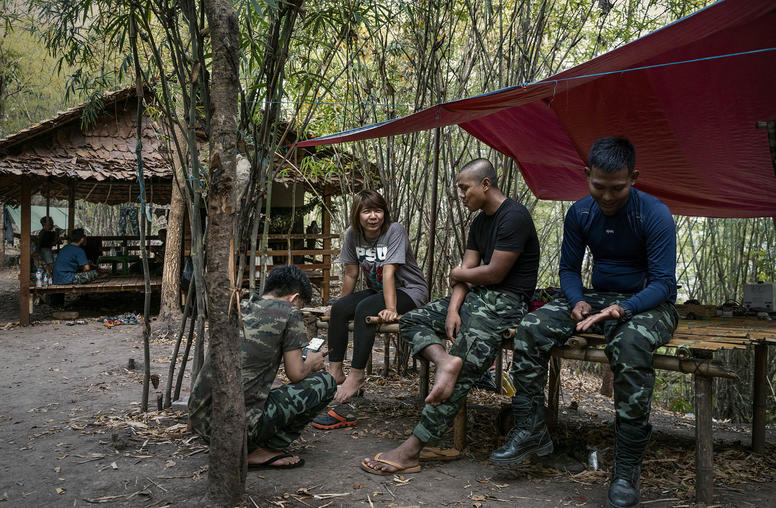The Shocking Rise in Coups - Day 2
Guinea-Conakry and Myanmar
As the Biden administration commits to revitalizing global democracy, the shocking rise in the number of recent coups demands an urgent response from the United States and its allies and partners. The number of coups and coup attempts in 2021 matches the highpoint for the 21st century. Despite what military juntas may claim, the current “epidemic of coups” — as U.N. Secretary-General Antonio Guterres has called it — spreads instability, undermines democratic progress and human rights and is accelerating cycles of violence in countries wracked by conflict.
Ahead of the Biden administration’s Summit for Democracy, USIP held a two-part event that examines the dynamics driving four of the seven coups and coup attempts that we’ve seen over the past two years. Day 2 featured panel discussions on Guinea-Conakry and Myanmar.
Visit the The Shocking Rise in Coups - Day 1 event page
Read the event analysis: Myanmar Read the event analysis: Guinea-Conakry
Guinea-Conakry (2:00pm – 3:15pm)
French
In Guinea-Conakry, the military arrested President Alpha Conde and suspended the constitution in September 2021. The coup came amid public discontent with Conde, who had pushed a controversial constitutional change to secure a third term and failed to address a number of domestic crises. In the aftermath, the coup’s leader, Colonel Mamady Doumbouya, has purged top military brass and been sworn in as president — promising to restore full civilian rule after a transition period of unspecified length despite pressure to commit to elections in the near term. This conversation will look at how the Economic Community of West African States, the African Union and the international community can better support the Guinean people’s efforts to reestablish constitutional order.
This session was broadcast in English and French.
- Oge Onubogu, moderator
Director, West Africa Program, U.S. Institute of Peace - Alexis Arieff
Specialist in African Affairs, Congressional Research Services - Ibrahima Niang
Regional Advocacy Manager, Open Society Institute West Africa - Christopher Fomunyoh
Senior associate and regional director for Central and West Africa, National Democratic Institute - Joseph Siegle
Director of Research, Africa Center for Strategic Studies, National Defense University
Myanmar (3:15pm – 4:30pm)
In February 2021, just as a newly elected government in Myanmar was set to begin its term, the military took power in a coup. In the months since, the civilian population has managed to build and sustain a diverse resistance movement that has prevented the military from consolidating power. But the military has responded by waging war on the Burmese people, arresting thousands and reversing 10 years of democratic progress. As a result, the country has descended into a state of chaos and violence, with neither side likely to strike a decisive blow. This conversation will explore the factors that contributed to the coup, as well as how civil society and international organizations can help restore a civilian elected government.
- Billy Ford, moderator
Program Officer, Myanmar, U.S. Institute of Peace - Khin Ohmar
Human Right Activist; Founder, Progressive Voice - Sai Kyaw Nyunt
General Secretary, Shan National League for Democracy - Myat The Thitsar
Researcher, University of Massachusetts - Gum San
Spokesperson, Kachin Political Interim Coordination Team



